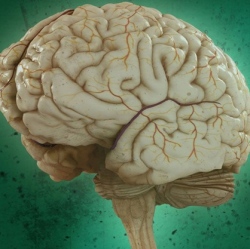
The hormone GLP-1 is released when we eat and makes us feel full or sated toward the end of the meal. GLP-1 receptors are also activated in parts of the brain that are linked to satisfaction or a sense of reward. This indicates the hormone is directly involved in our experience of gratification.
Scientists reason that by blocking these receptors they can prevent smokers from feeling satisfied after a cigarette.
“Without this kind of reward, a smoker will not keep smoking. It can reduce addiction and the risk of a relapse,” says Elisabet Jerlhag, a researcher at the Sahlgrenska Academy of the University of Gothenburg.
Jerlhag and colleagues have investigated this new potential weapon in the battle against smoking. The ranks of daily, habitual smokers are on the decline but tobacco smoke remains a substantial public health challenge. Even those who are not heavy, daily smokers can find it hard to stub their cigs for good.
“Nicotine is remarkably habit-forming, and many people find it terribly hard to quit smoking. We need to start accepting dependency as a disorder that requires treatment,” says Jerlhag.
